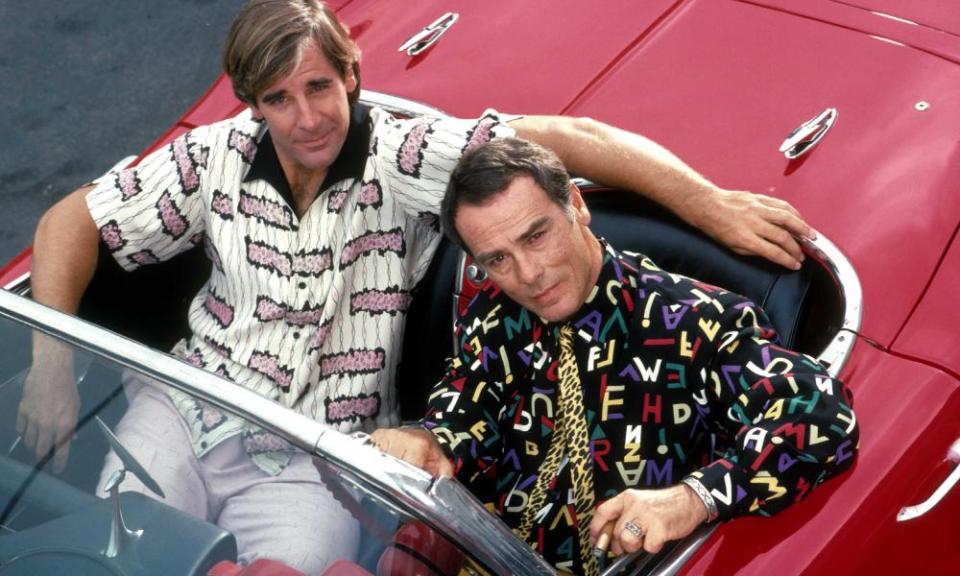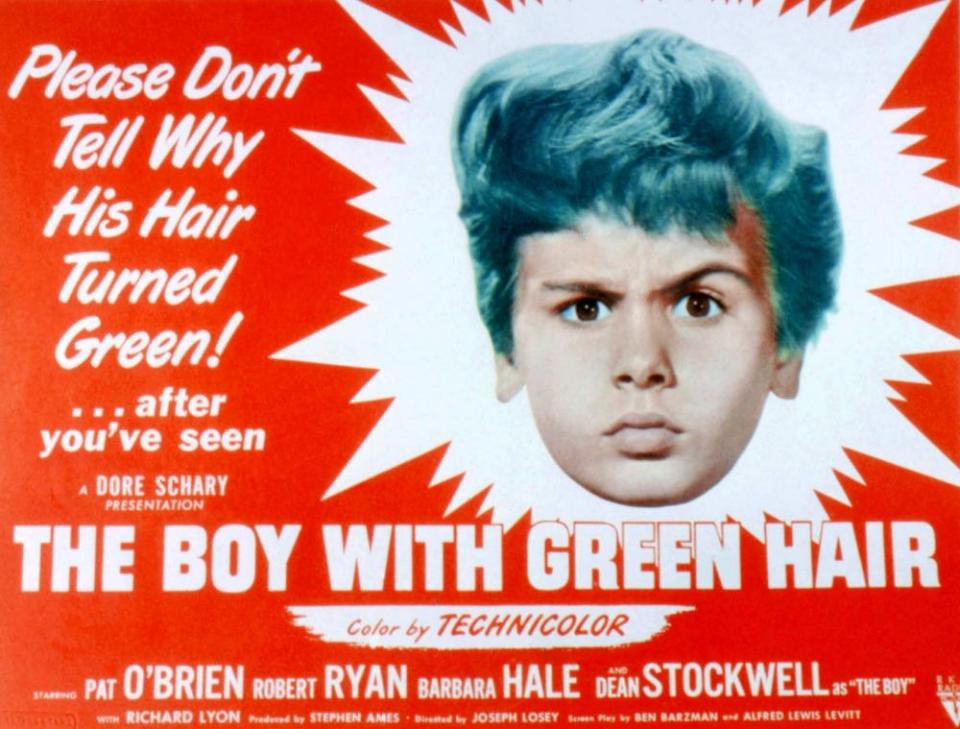Dean Stockwell obituary
The actor Dean Stockwell, who has died aged 85, enjoyed periods of acclaim punctuated by bouts of sometimes self-inflicted obscurity, but found his widest audience in a recurring role on television in Quantum Leap (1989-93). The series followed a physicist, Dr Sam Beckett (Scott Bakula), on time-travelling expeditions to correct historical injustices. Stockwell played his sidekick, Al, who appears in hologram form.
While the series used Sam’s endeavours to facilitate social commentary, the cigar-chomping Al served as a comic pick-me-up: world-weary, witty, charismatic. In 1990 Stockwell won a Golden Globe for his performance.
His acting career began when he was seven. As a child, he was praised for performances including the title role in Joseph Losey’s antiwar allegory The Boy With Green Hair (1948). As a young adult, he received awards for work such as the thriller Compulsion (1959), based on the Leopold and Loeb case. During his late-period comeback, he was used by film-makers such as Robert Altman (The Player, 1992), David Lynch (Dune, 1984; Blue Velvet, 1986) and Wim Wenders (Paris, Texas, 1984). But throughout his working life, he regarded his profession with ambivalence; this contributed to his unpredictable quality.
“He’s such a chameleon,” said Jonathan Demme, who cast Stockwell as a flamboyant mafia kingpin in the 1988 comedy Married to the Mob, a performance for which the actor received his only Oscar nomination. “That’s what makes him special – he has such mercurial presence.” Stockwell recognised his own off-kilter appeal: “In my work, I’m dealing with something that is essentially mysterious, and I prefer and am inclined to deal with it in a mysterious way.”
He was born in Los Angeles to Harry Stockwell, an actor who provided the voice of Prince Charming in Disney’s Snow White and the Seven Dwarfs, and Nina Olivette, an Italian-American vaudeville entertainer sometimes known as Betty Veronica. They separated when he was six; he and his elder brother, Guy (also an actor), remained with their mother.

Both siblings were appearing on Broadway in the play The Innocent Voyage when the seven-year-old Stockwell was spotted by a talent scout. He was put under contract by MGM and schooled on the studio lot in between making several films a year, including Anchors Aweigh and Abbot and Costello in Hollywood (both in 1945). At 14, he played the lead in an adaptation of Kipling’s novel Kim, and was befriended by his co-star Errol Flynn, who, according to Stockwell, asked, in front of his mother, “Have you had your first fuck yet?”
Stockwell spoke frequently of the “extreme psychological and emotional pressure” to which he was subjected as a child star. “A lot of demands were placed on me that should not be placed on a child, at all, ever … I resented the whole thing.” Celebrity brought Stockwell no succour. “I was under siege, under attack. At the end of the day, when I left MGM, there were hundreds of people waiting for me. It was a dreadful experience.”
After graduating from high school, he travelled and took menial jobs for five years, but returned to acting in 1957 because “there was nothing else I could do”. He landed one of the leads in the Broadway production of Compulsion, and reprised the role two years later on film.
He starred in adaptations of DH Lawrence’s Sons and Lovers (1960) and Eugene O’Neill’s Long Day’s Journey Into Night (1962); the latter, directed by Sidney Lumet, won Stockwell his second Cannes film festival acting prize, shared with his cast members. (The festival had already honoured him with a solo award for Compulsion.) But his behaviour became self-destructive. He split from his wife, the actor Millie Perkins, after two years of marriage; she alleged mental cruelty. He destroyed his Cannes awards in a drunken rage.

He quit acting again for three years, and embraced the hedonistic culture of 1960s California, fraternising with like-minded friends including Dennis Hopper, Jack Nicholson and Neil Young (with whom he would co-write and co-direct the ramshackle 1982 comedy Human Highway). “The flower children and the love-ins … were the childhood I didn’t have,” he said. When he returned to acting in the late 60s, he was more of an outsider than ever. After several films for Roger Corman’s AIP (American International Pictures), and a part in Hopper’s The Last Movie (1971), film work grew scarce. During the 70s, when not appearing in curiosities (The Werewolf of Washington, 1973; Henry Jaglom’s post-Vietnam drama Tracks, 1977), Stockwell could be found performing on the dinner-theatre circuit.
His financial situation became so dire that he decamped to Santa Fe with the intention of making a living in property. (An ad placed in 1983 reads: “Dean Stockwell will help you with all your real estate needs …”) But in 1984 a role in Lynch’s science-fiction extravaganza Dune distracted him from that path. In the same year, Harry Dean Stanton, who was about to play the lead in Wenders’s Paris, Texas, suggested him for a supporting part. The film won the Palme d’Or at Cannes, and helped revive Stockwell’s career.
His fortunes changed dramatically. He starred in three films for Francis Ford Coppola, Gardens of Stone (1987), Tucker: The Man and His Dream (in which he played Howard Hughes, 1988) and The Rainmaker (1997). He was also a sinister, enigmatic presence in Lynch’s Blue Velvet (1986), for which he devised his character Ben’s drugged, dandyish look. “To me it was the high point of the film,” said his co-star Hopper. “The white makeup, the batting eyelashes – Dean has ways no other actor can touch.”
These movies, and others including William Friedkin’s To Live and Die in LA (1985) and Altman’s The Player, made definitive Stockwell’s return to cinema.
Though he continued to work in that medium, his most noteworthy latter-day appearances came in science-fiction television: following Quantum Leap he had guest roles in Star Trek: Enterprise and Stargate SG-1 (both 2002), and was a regular on the highly regarded Battlestar Galactica (2006-09). He also enjoyed a career as an artist, using the name Robert Dean Stockwell to distinguish his art from his acting.
He is survived by two children, Austin and Sophia, from a second marriage, to Joy Marchenko, which also ended in divorce.
• Robert Dean Stockwell, actor and artist, born 5 March 1936; died 7 November 2021

 Yahoo Movies
Yahoo Movies 
